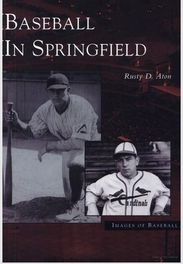Baseball in Springfield (MIssouri) - Rusty D. Aton - Arcadia Publishing, 2005 - History - 128 pages

McAvoy's replacement of Joe Mathus with former major league player and manager Norman "The Tabasco Kid" Elberfeld turned out to be the only positive move during the off-season. The other baseball note in Springfield making headlines was the sale during the fall of White City Park to the Springfield Board of Education for $60,000. E.M. Wilholt's death in October had caused the transaction and removed one of the Springfield club's biggest allies. Ultimately, the sale presented Springfield management with a new entity to deal with and made future negotiations for use of White City Park less club friendly than before.
McAvoy's lackadaisical approach to farm club ownership seemed inconsequential as the fiery "Kid" Elberfeld drew out of the Midgets the same intensity that had characterized his play. One month into the season Elberfeld guided the Midgets into the thick of the 1930 W.A. pennant race. Springfield clung to a one-half game lead over Joplin after the Miners swept the Midgets in three straight games during late May. The story of Springfield's season and the Browns future in Springfield could be summed up during that Joplin series when the Midgets' starting pitcher Dick Grey struck out twelve Joplin batters but still lost the game. The tide of the Midgets' season turned soon after, and by early June, Joplin grabbed hold of first place for good. The Midgets managed to stay close to Joplin throughout the first half but finished four games back and in second place at 35-26. Few fans, however, seemed to notice or even care about the Midgets' improved play and the stands at White City Park remained mostly empty. The second half performance of the team did little to change the trend, as the Midgets slowly sunk to last place and stayed there until the end of the season. A second half record of 29-47 further dulled by the emerging Depression resulted in Springfield's 1930 total attendance reaching only 23,000 paid fans—not even one-third of the 1926 record total.
McAvoy's lackadaisical approach to farm club ownership seemed inconsequential as the fiery "Kid" Elberfeld drew out of the Midgets the same intensity that had characterized his play. One month into the season Elberfeld guided the Midgets into the thick of the 1930 W.A. pennant race. Springfield clung to a one-half game lead over Joplin after the Miners swept the Midgets in three straight games during late May. The story of Springfield's season and the Browns future in Springfield could be summed up during that Joplin series when the Midgets' starting pitcher Dick Grey struck out twelve Joplin batters but still lost the game. The tide of the Midgets' season turned soon after, and by early June, Joplin grabbed hold of first place for good. The Midgets managed to stay close to Joplin throughout the first half but finished four games back and in second place at 35-26. Few fans, however, seemed to notice or even care about the Midgets' improved play and the stands at White City Park remained mostly empty. The second half performance of the team did little to change the trend, as the Midgets slowly sunk to last place and stayed there until the end of the season. A second half record of 29-47 further dulled by the emerging Depression resulted in Springfield's 1930 total attendance reaching only 23,000 paid fans—not even one-third of the 1926 record total.



